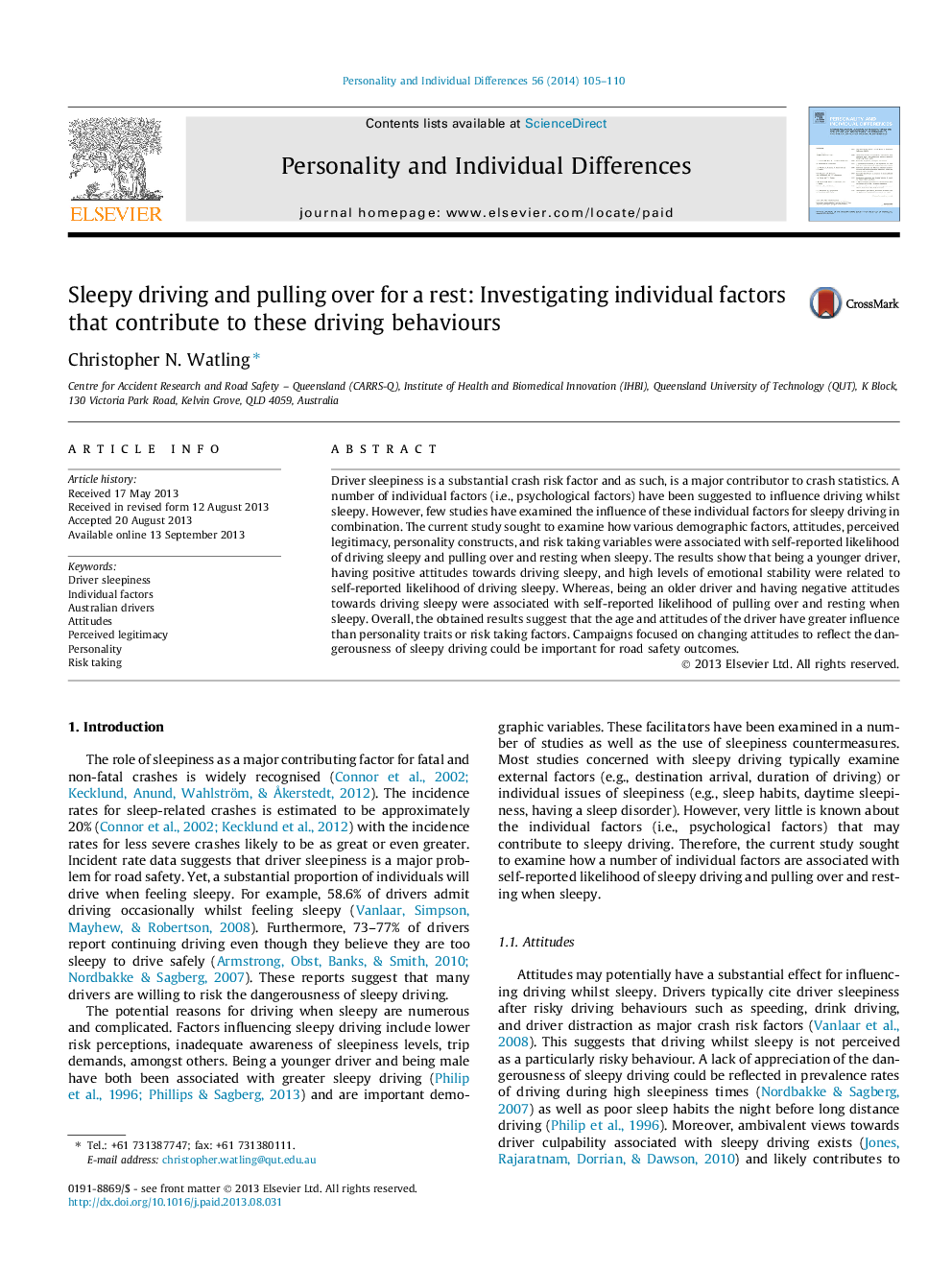| Article ID | Journal | Published Year | Pages | File Type |
|---|---|---|---|---|
| 890567 | Personality and Individual Differences | 2014 | 6 Pages |
•Driver sleepiness is a substantial crash risk factor.•A number of individual factors related to sleepy driving were examined.•Age, attitudes, and emotional stability were related to likelihood of sleepy driving.•Age and attitudes were related to likelihood of stopping and resting when sleepy.•Altering attitudes to reflect how dangerous sleepy driving is may curb this behaviour.
Driver sleepiness is a substantial crash risk factor and as such, is a major contributor to crash statistics. A number of individual factors (i.e., psychological factors) have been suggested to influence driving whilst sleepy. However, few studies have examined the influence of these individual factors for sleepy driving in combination. The current study sought to examine how various demographic factors, attitudes, perceived legitimacy, personality constructs, and risk taking variables were associated with self-reported likelihood of driving sleepy and pulling over and resting when sleepy. The results show that being a younger driver, having positive attitudes towards driving sleepy, and high levels of emotional stability were related to self-reported likelihood of driving sleepy. Whereas, being an older driver and having negative attitudes towards driving sleepy were associated with self-reported likelihood of pulling over and resting when sleepy. Overall, the obtained results suggest that the age and attitudes of the driver have greater influence than personality traits or risk taking factors. Campaigns focused on changing attitudes to reflect the dangerousness of sleepy driving could be important for road safety outcomes.
